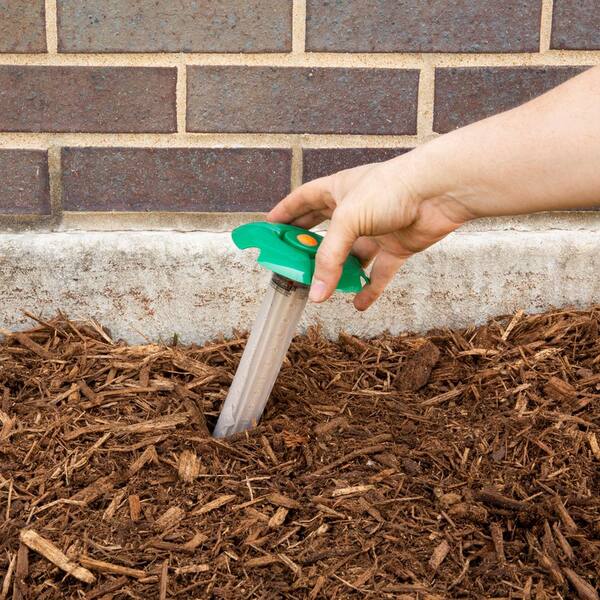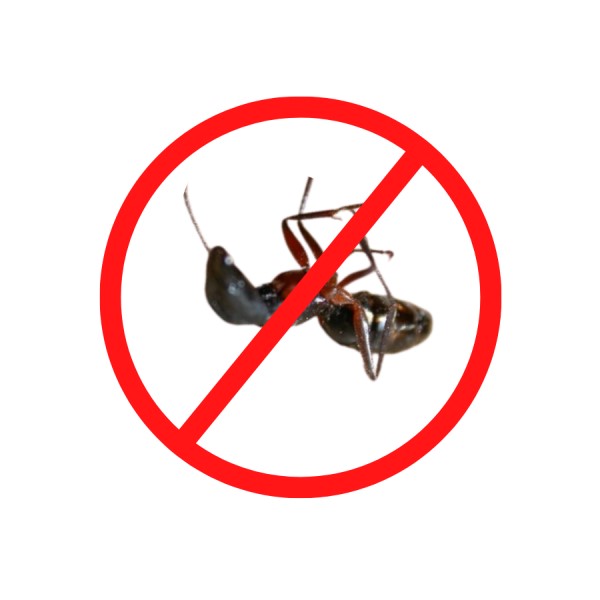Efficient Ant Control: Professional Services to Get Rid Of Ant Infestations
Ecological Influence of Bug Control: Harmonizing Efficiency With Sustainability
The ecological effect of insect control is a critical concern that requires a fragile equilibrium in between achieving effectiveness in ensuring and handling pests sustainability of our communities. From the use of hazardous chemicals that seep right into our dirt and water to the unintended consequences on non-target species, the consequences of traditional parasite control practices are significant.
Damaging Chemicals in Parasite Control
The utilization of hazardous chemicals in pest control postures significant ecological and health and wellness threats that warrant cautious consideration and reduction strategies. Pesticides, herbicides, and pesticides are frequently used to eliminate pests, yet their extensive application can bring about unintended effects. These chemicals can contaminate soil, water resources, and the air, affecting not only the targeted pests but likewise beneficial bugs, wild animals, and humans.

To deal with these dangers, integrated insect management (IPM) methods are being promoted as a much more sustainable alternative. IPM involves a mix of approaches such as organic control, environment adjustment, and the targeted use chemicals as a last hope (ant control weddington nc). By taking on an all natural strategy to pest control, we can decrease the ecological and health and wellness effects connected with damaging chemicals while efficiently managing pest populaces
Effect on Non-Target Variety
Taking into consideration the unexpected repercussions of pest control approaches, the effect on non-target species is an essential facet that requires thorough analysis. While insect control steps aim to target certain insects, various other organisms in the ecological community might be accidentally impacted. Non-target species, consisting of useful insects, birds, mammals, and even plants, can endure indirect or straight harm from chemical applications or organic control approaches.
Pesticides can have sub-lethal or lethal results on non-target species. Insecticides developed to deal with a specific bug parasite may hurt pollinators like or natural killers such as ladybugs. Furthermore, chemical deposits can accumulate in the atmosphere, impacting non-target microorganisms gradually. Biological control agents, if not species-specific, can position dangers to unintentional targets, interfering with the eco-friendly equilibrium.
To reduce the effect on non-target types, integrated bug administration (IPM) approaches that stress a holistic strategy to pest control are recommended. These approaches focus on making use of ecologically friendly methods, lessening damage to beneficial organisms while properly managing pest populaces. Carrying out complete danger assessments and keeping track of the end results of bug control efforts are essential actions in securing non-target species and advertising total environment health and wellness.
Soil and Water Contamination
Unplanned ecological consequences of bug control techniques extend past affecting non-target species, with substantial effects for dirt and water contamination. Pesticides, herbicides, and chemical plant foods utilized in pest control can seep into the dirt and pollute groundwater, positioning a threat to both marine and earthbound environments. Soil contamination can interfere with the balance of microbes vital for nutrient biking and plant growth, bring about reduced soil fertility and efficiency. Furthermore, these chemicals can continue the setting for extended durations, accumulating in the soil and potentially getting in the food chain.
Water contamination is another vital concern related to insect control techniques. Runoff from farming areas treated with pesticides can carry these chemicals into nearby water bodies, impacting water microorganisms and water top quality. Contaminants in water sources can have far-reaching repercussions, affecting not just marine life yet additionally human health through the consumption of infected water or marine organisms. To alleviate soil and water contamination from pest control activities, incorporated parasite monitoring strategies that prioritize sustainability and reduce chemical inputs are crucial.
Air Air Pollution From Pesticide Usage
Exposure to airborne pesticides throughout agricultural applications postures a significant problem for air contamination control steps. They can volatilize into the air and kind unpredictable organic compounds (VOCs) and various other air-borne pollutants when chemicals are sprayed onto plants - termite control services. These chemicals can add to the formation of ground-level ozone, a major part of smog that can have damaging effects on human health and wellness, plant efficiency, and overall air high quality. Additionally, chemical drift, where pesticides are carried by the wind to unintended locations, can result in the contamination of neighboring environments and water bodies.

Techniques for Lasting Pest Control
In the realm of agricultural methods, applying sustainable pest control techniques is extremely important for maintaining environmental equilibrium and guarding plant yields. Sustainable bug control stresses making use of eco-friendly techniques to take care of pest populaces properly while minimizing harm to non-target organisms and environments. Integrated Bug Monitoring (IPM) is a widely embraced method that integrates biological, cultural, physical, and chemical control methods to achieve long-term pest management solutions.
One key technique in sustainable pest control is promoting biodiversity within agroecosystems. By enhancing natural enemies of pests, such as parasitoids and killers, farmers can lower the demand for artificial chemicals. Crop rotation and diversity are likewise efficient strategies to interrupt pest life cycles and produce less positive conditions for parasites to grow. In addition, utilizing pest-resistant crop varieties and employing strategies like trap cropping can help in reducing insect pressure without counting heavily on chemical treatments. Inevitably, by integrating these lasting bug control techniques, farmers can attain a balance in between pest administration effectiveness and ecological stewardship.
Final Thought
Finally, the environmental impact of parasite control methods need to be thoroughly taken into consideration to balance efficiency with sustainability. Harmful chemicals made use of in bug control can lead to dirt and water contamination, air contamination, and harm non-target types - ant control. It is important to apply sustainable insect control approaches to minimize these negative impacts on the setting and advertise a much healthier environment for future generations
By embracing an alternative strategy to pest control, we can minimize the environmental and health effects connected with harmful chemicals while efficiently that site handling pest populations.

To alleviate the air pollution triggered by pesticide usage, it is important to adopt incorporated insect monitoring techniques that focus on the use of non-chemical insect control approaches, such as crop turning, natural killers, and resistant plant ranges. Lasting pest control highlights the usage of eco friendly approaches to manage bug populaces efficiently while decreasing harm to non-target organisms and ecological communities. Integrated Insect Monitoring (IPM) is a widely embraced strategy that combines biological, cultural, physical, and chemical control techniques to attain long-term parasite administration options.